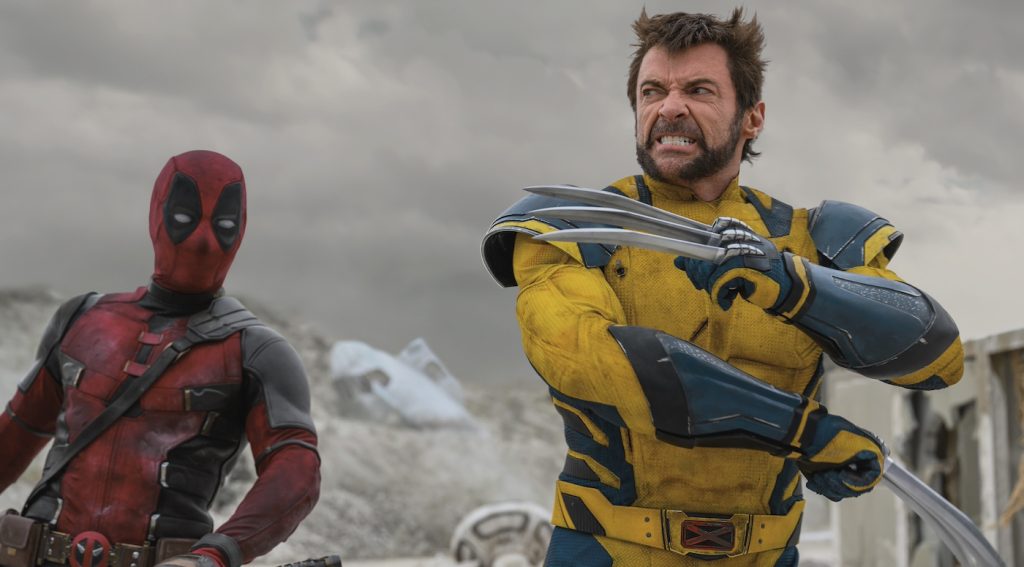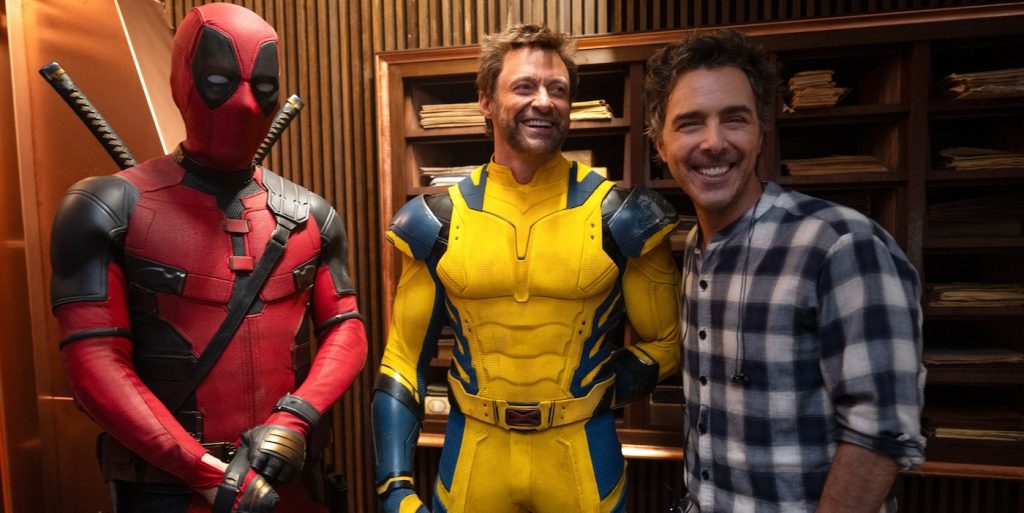“Deadpool & Wolverine” Editors Dean Zimmerman & Shane Reid on the Killer Cut
When a movie trailer makes history by snatching 365 million views in 24 hours, at the very least, the studio behind it knows they have an interested audience. Deadpool & Wolverine did so in February this year and then trickled out a treasure trove of marketing materials leading up its July release. Everything from conspiracy riddled images, popcorn bucket sets, possible cameos, actual cameos, to being able to rent the X-Men Mansion on AirBnb, eat a Deadpool inspired Chimi-Merc burger (which was actually quite delicious if you enjoy that spicy life), and the crème de la crème: releasing 9 “f**king awesome” minutes of footage at CinemaCon. But possibly the biggest question that left everyone wondering: who in God’s green earth is playing Lady Deadpool?
The hype train got audiences into seats to the tune of 1.2 billion worldwide at the time of this article’s publishing. And what makes this movie work so well is that it’s an anti-Marvel film. MCU fatigue is real. It’s so real that Deadpool (Ryan Reynolds) reminds us about it. “Welcome to the MCU. You’re joining at a bit of a low point.” And the special sauce underneath all the laugh-out-loud moments is that you don’t need to know anything about the Marvel timeline. It’s a movie that stands alone.
“I know ten and twelve-year-olds who say this is their favorite movie ever. And I have a friend whose dad is 77, and he was like, ‘I didn’t understand a lot of what was going on, but I can honestly tell you, I don’t think I’ve had more fun in a movie theater laughing’,” picture editor Dean Zimmerman shares with The Credits. “So the range of the level of humor and what it’s connected to, is what I think is one of the most successful things about the film.”

The success is also linked to a storyline – directed by Shawn Levy – that feels more like a buddy movie where two guys who don’t always see eye to eye and happen to wear superhero costumes end up saving the world. It’s a side step from the origin-fueled good versus evil trope Marvel tends to fall into. Not to say there isn’t any of the latter in this movie. There is. But it’s done in a way where performance outweighs spectacle. Zimmerman and co-editor Shane Reid worked relentlessly to bring out the best performance in each scene. “What really separates Shawn and Ryan is they don’t give a fuck if something is not working with an audience. They will cut it so fast, and it could be their favorite thing in life. If it’s bringing the movie down, they remove it without even a question,” says Zimmerman. Several audience tests provided the editors with invaluable feedback.
“One interesting thing about the testing was that the Deadpool and Wolverine characters both had insanely high percentages. So we felt going in that these guys were delivering, and the fans love it, and now everything else needs to work around and support that,” mentions Reid. “It would have been really problematic if one of our heroes was testing like 50 percent higher than the other. But the synergy between Ryan and Hugh was a huge success, and what was in the script came out of them in the performance.”
Even with the positive response, the editors were very aware that the movie could have flopped. “Well, it wasn’t improbable,” says Reid. “You can do all the testing, but when it comes time for the film to be released, people are going to tell you what they like and what they don’t like.” Zimmerman shares a similar thought. “Shawn and I did the internship with Vince Vaughn and Owen Wilson, and we tested in the high 90s. People loved it, but then it was reviewed, and it turned into, ‘Oh, it’s an ad for Google.’ That’s what everybody thought, and it did okay at the box office. But it’s been so much more successful on streaming because people are discovering it without the might of the media saying something to turn people off. To this day, I still get people saying that it was such an incredible movie.” The editors credit Levy and Reynolds for its box office prowess. “I just think the culture of Deadpool and the might of Ryan, there was no way it wouldn’t be a success. This level of success? We are all very surprised, but it’s also warranted and justified,” notes Zimmerman.
Box office numbers don’t always translate to success among peers during award season. The only comic book film to receive an Academy Award nomination for picture editing is Nolan’s The Dark Knight (edited by Lee Smith). Could Deadpool & Wolverine be Marvel’s first? “Having done a Marvel movie, I can say this stuff is really hard,” says Zimmerman. “It’s not just action or paint by numbers. Sometimes I feel like performances that are based in fantasy are harder almost. And with something like this you have to track so many rules and laws and also deliver performance. It’s definitely a question we need to open up our minds a little bit more and really understand that these movies are not simple little things.”

Reid has a similar sentiment. “I think sometimes Marvel gets lumped into this one giant thing, and the critical response is based around the whole. But when you look at the individual films, like how many dramas swing for the Oscars and suck? How many comedies swing for the fences and underdeliver? It’s the same with any comic book film. Some of them hit, and some of them don’t. And that’s not on anyone. I think it’s important for our industry to recognize the craftsmanship and the work that goes into specific films. Films like The Lord of the Rings, Mad Max, and Barbie are breaking the mold a little bit. Hopefully, Deadpool & Wolverine will follow that trend where people will notice the craft and the work.”
Even after a month in theaters, new things about the movie are popping up. The latest being a deleted scene released by Reynolds on social media showing Gambit (Channing Tatum) walking away from a fight where could have been found dead.
*whispers* Marvel Sparkle Circle #DeadpoolAndWolverine❤️💛 pic.twitter.com/TtuZ5jSAdL
— Ryan Reynolds (@VancityReynolds) August 27, 2024
There was a line where Deadpool says, ‘We left some people behind. Is there any way we can service them?’ And B-15 [Wunmi Mosaku] says, ‘We’ll see what we can do.’ So with that line, we didn’t need to show Gambit at the end. But Ryan said we could use it for marketing. And that’s just the brilliance of his marketing mind and his brain in general. There’s never anything that’s shot that’s not utilized somewhere in some other way,” says Zimmerman. For those wondering if there will be any more deleted scenes, you’ll have to wait and find out.
Deadpool & Wolverine is playing in theaters now.
For more on Deadpool & Wolverine, check out these stories:
Gambit Lives: “Deadpool & Wolverine” Deleted Scene Confirms Channing Tatum’s Remy LeBeau Survived
Featured image: (L-R): Ryan Reynolds as Deadpool/Wade Wilson and Hugh Jackman as Wolverine/Logan in 20th Century Studios/Marvel Studios’ DEADPOOL & WOLVERINE. Photo by Jay Maidment. © 2024 20th Century Studios / © and ™ 2024 MARVEL.



